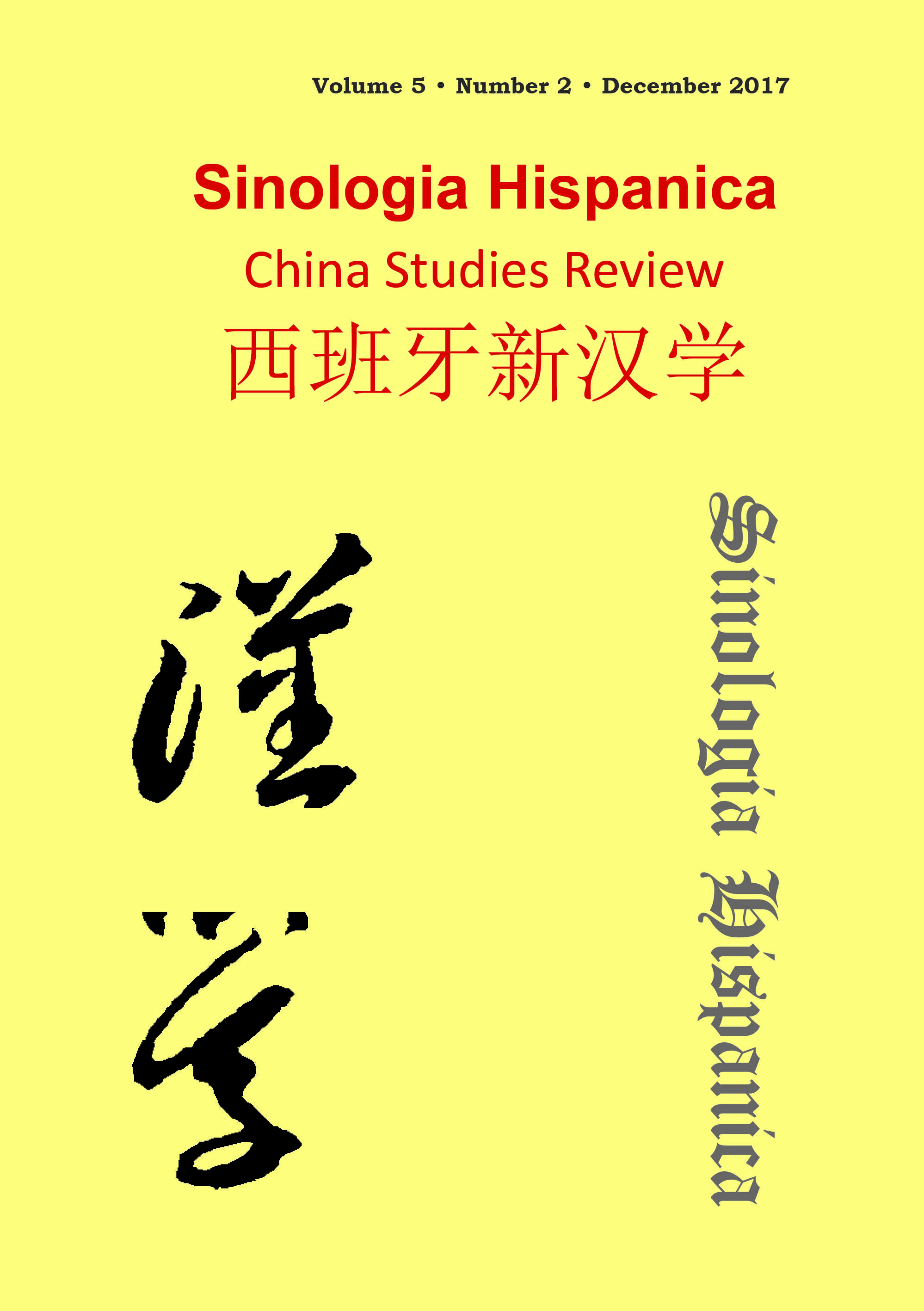A Brief Study of German Sinology Origins and the Dissemination of Daoism
DOI:
https://doi.org/10.18002/sin.v5i2.5405Palabras clave:
German sinology, Daoism, Asian studies, oriental studies, sinology.Resumen
The dissemination of Daoism in the West is a process that, although it begins late and slow, will lead to the great interest that this way of thinking has finally awakened, not only in the academic field, but also in some popular media.
In order to clarify the history of the Western study of Chinese doctrine, the present article reviews the contribution of what we call the
German sinology until the mid-twentieth century to focus the contribution of the Germanic works. With the recognition that the first works in German language on the Daoism are due to the Austrian sinologist and Japanese scholar August Pfitzmaier, we review the history of sinology in Germany highlighting authors and summarizing their biographies, works and Daoist contributions: Andreas Müller, for his Clavis Sinica; Christian Mentzel, engaged in linguistic works; Gottlieb Bayer, for his Museum Sinicum in quo Sinicæ linguæ et litteraturæ ratio explicatur; Julius Klaproth, the first German to excel in modern sinology and Georg von der Gabelentz, for his pioneering Beiträge zur chinesischen Grammatik, die Sprache des Chuang-Tsi. From the eighteenth century and with the beginnings of Sino-German relations: Ernst Faber, the undisputed Richard Wilhelm and Otto Franke. In the second half of the twentieth century, there was a resurgence of sinological studies throughout Germany, where the war had stopped these activities and had forced numerous renowned specialists such as Ernest Julius Walter Simon and Erich Haenisch to escape.
July 2017
October 2017
Received:
Accepted:
The dissemination of Daoism in the West is a process that, although it begins late and slow, will lead to the great interest that this way of thinking has finally awakened, not only in the academic field, but also in some popular media. In order to clarify the history of the Western study of Chinese doctrine, the present article reviews the contribution of what we call the
1 Esta investigación formó parte del trabajo doctoral realizado por el autor dentro del programa oficial de doctorado de la Facultad de Filosofía de la Universidad de Valencia (España), "Razón, Lenguaje e Historia" (627 165F).
Descargas
Métricas alternativas
Descargas
Publicado
Cómo citar
Número
Sección
Licencia
Derechos de autor 2018 Gabriel Terol Rojo

Esta obra está bajo una licencia internacional Creative Commons Atribución-NoComercial-CompartirIgual 4.0.
Sinologia Hispanica. China Studies Review considers all manuscripts on the strict condition that
- The authors grant on a nonexclusive basis the exploitation rights (reproduction, distribution, public communication and transformation) of the work accepted for publication to the University of León. The authors can establish, on their own, additional agreements for the non-exclusive distribution of the version of the work published in the journal (for example, placing it in an institutional repository or publishing it in a book), always acknowledging the initial publication in this journal.
- The manuscript is your own original work, and does not duplicate any other previously published work, including your own previously published work.
- The manuscript is not currently under consideration or peer review or accepted for publication or in press or published elsewhere.
- The manuscript contains nothing that is abusive, defamatory, libellous, obscene, fraudulent, or illegal.
- Please note that Sinologia Hispanica uses Turnitin software to screen manuscripts for unoriginal material. By submitting your manuscript to Sinologia Hispanica you are agreeing to any necessary originality checks your manuscript may have to undergo during the peer-review and production processes. Any author who fails to adhere to the above conditions will be rejected.
- Authors are allowed and encouraged to electronically disseminate the pre-print versions (version before being evaluated) and / or post-print (version evaluated and accepted for publication) of their works before publication, since it favors their circulation and earlier dissemination and with it a possible increase in its citation and scope among the academic community.
Sinologia Hispanica is under Creative Commons Attribution-NonCommercial-ShareAlike 4.0 International License. You can read more about this license in versión informativa and texto legal.










